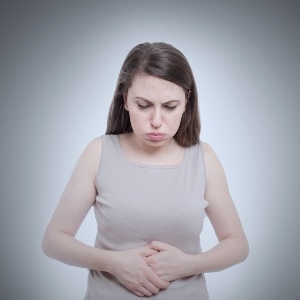Premenstrual Syndrome or PMS symptoms are not a normal part of life. Symptoms are generally warning signs from our bodies that something is out of balance. More and more women are struggling with PMS because two major factors: diet and stress levels have changed in our modern lives. Stress levels are at an all-time high for women and never before have there been so many pre-packaged, GMO and low-nutrient foods available. All these, along with stress wreck havoc to a woman’s body.
Stress can be one of the more debilitating symptoms of PMS. It doesn’t seem to care whether or not you’ve suffered from it in the past; it can just strike you down at random and make an ordinary day suddenly overwhelming.
Women who say they feel stressed early in their menstrual cycle are more likely to report the cramping, bloating and mood swings of PMS — premenstrual syndrome — later in the month, a new study shows.

Researchers from the Eunice Kennedy Shriver National Institute of Child Health and Human Development, along with researchers from other institutions, quizzed 259 women of childbearing age about their stress levels. The women were asked how often they felt unable to control their lives, and how often they felt nervous, for example. Study participants who reported a lot of stress early in the menstrual cycle were subsequently more likely than relaxed women to report moderate or severe discomfort before and during menstruation. Furthermore, all of the women in the study were followed for more than one cycle; among women who reported stress in one month and not in the next month, the more stressful month was, on average, followed by worse symptoms of PMS.

It is not totally clear why stress might affect a woman’s physical comfort and mood even weeks later, before and during her period. But stress is a hormonal process, and so, of course, is much of the work of the reproductive system. Writing in the Journal of Women’s Health, the researchers say that stress may have an impact on PMS through several channels: perhaps by altering levels of ovarian hormones, or perhaps because the stress hormone cortisol has an impact on PMS symptoms. “Stress-reduction programs,” the researchers write, “may be an effective, nonpharmaceutical treatment” for both physical and psychological symptoms of PMS.
For some women, stress may play a role in causing irregular or missed periods. As stress levels rise, there’s a chance that your menstrual period will temporarily stop, a condition known as secondary amenorrhea.
When I took on a new job with a much higher position and salary years ago, the job came with increased stress. I had irregular meals, did not have the time to exercise and worked very long hours. Less than a year into the new job, I was diagnosed with Polycystic ovary syndrome (PCOS)
and infertility. It took me 2.5 years before I conceived my eldest daughter, via IUI.
Stress early in the cycle is a risk factor for PMS and combating stress with yoga, exercise, biofeedback, fun time, positive thinking or meditation may help prevent PMS symptoms or make them much more manageable. The symptoms may not go away completely, but stress-reduction techniques could make symptoms more manageable.
